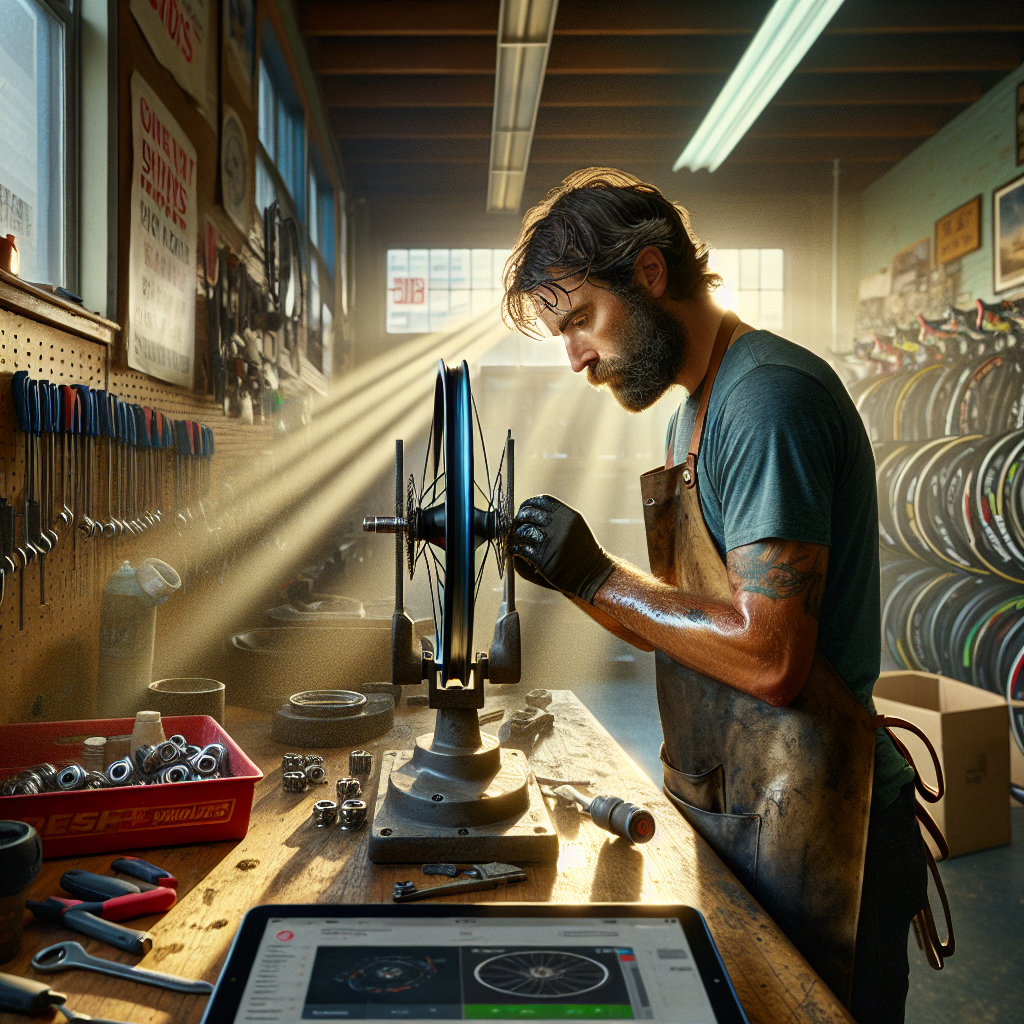AI Tactics Tampa Bike Shops Can Use to Spike Sales

How Tampa Bay Area Specialty Bike Shops Can Use AI to Elevate Cyclist Experience and Boost Sales
Running a specialty bike shop in the Tampa Bay market means juggling a lot at once—inventory turns, expert repair work, group rides, and community events all compete for attention and cash flow. Margins stay tight, seasons swing from booming to quiet, and owners often feel like they’re grinding up an endless hill. Artificial Intelligence (AI) can step in as an unexpectedly affordable co-pilot. It takes over repetitive tasks, spots hidden money leaks, and even helps with upselling in ways customers actually appreciate. Below, you’ll see how a Fortune 500 giant, Caterpillar, applied AI at scale and what a similar, right-sized playbook could look like for a local Tampa Bay shop.
Caterpillar’s AI-Powered Predictive Maintenance: A Case Study
Picture a massive open-pit mine or a deep-sea cargo ship where a single equipment failure can halt production, strand crews, or rack up huge repair costs. In that high-stakes world, Caterpillar rolled out an AI-driven predictive maintenance system. Sensors embedded in critical components stream real-time data—temperature, vibration, oil quality—into cloud-based machine-learning models. When those models detect anomalies, like a bearing developing micro-fractures or a pump running too hot, the system automatically alerts the maintenance team.
That alert triggers a scheduled fix before anything fails, eliminating unplanned downtime and avoiding collateral damage to other parts. The result: consistent operations, lower total cost of ownership, and happier customers who depend on machinery that rarely surprises them with breakdowns.
Imagine This Hypothetical Scenario for a Tampa Bay Business: South Tampa Bicycle Co.
South Tampa Bicycle Co. is already known for friendly staff, well-attended shop rides, and a rock-solid demo fleet. Now imagine they decide to add a light version of Caterpillar’s predictive maintenance setup.
AI Predictive Maintenance
First, the shop outfits rental and demo bikes with low-cost IoT sensors that track mileage, torque applied to cranks, motor temperature on e-bikes, and battery charge cycles. That data flows to a cloud dashboard running a machine-learning model designed to flag wear patterns. When it sees, say, chain stretch trending outside normal bounds, the system schedules service before shifting becomes sloppy or a chain snaps mid-ride.
For the shop, that means fewer sudden repairs, longer component life, and bikes that are always dialed in for the next customer. Riders experience smooth shifting, safe braking, and reliable power assist—details that build trust and lead to five-star reviews.
AI Customization Recommendations
Maintenance is only one side of the coin. On the sales floor, the same AI engine can mine purchase history, fit data, and riding logs to suggest tailored gear. Suppose a customer records frequent mixed-surface rides on the Upper Tampa Bay Trail. The system spots that pattern and recommends a wider tubeless tire with added puncture protection designed for gravel transitions. Or it notices an uptick in nighttime rides and nudges the sales associate to show off the latest USB-rechargeable light set.
Those recommendations feel personal, not pushy, because they’re grounded in real behavior. Conversion rates rise because the advice is genuinely useful, and the customer walks away better equipped for their style of riding.
Tying the Pieces Together
“But we’re not a global giant like Caterpillar,” you might say. Fair point—yet the barrier to entry has dropped sharply. Sensors that once cost hundreds of dollars now start under thirty, and SaaS platforms offer machine-learning models on a monthly subscription. A local bike shop can dip a toe in for the price of a mid-range wheelset rather than sinking six figures into custom software.
Starting small is key. A trial on a dozen rental bikes or a single repair stand gives real-world data on savings and efficiencies. From there, you can decide whether expanding the program pencils out.
Practical First Steps for Tampa Bay Bike Shops
- Audit Your Data Touchpoints – List the data you already collect—service logs, POS sales reports, bike-fit measurements—and note what’s missing (e.g., rental mileage).
- Choose a Pilot Use Case – Focus on a narrow goal like predictive maintenance for rentals where turnaround time directly affects revenue.
- Vet an AI Platform – Look for software that plugs into existing tools, offers simple dashboards, and doesn’t require a full-time data scientist to run.
- Train Staff Incrementally – Designate one or two “AI champions” to learn the system, test alerts, and fine-tune workflows before rolling it out shop-wide.
- Measure and Refine – Track hard metrics—service turnaround, parts replaced before failure, upsell conversion—and compare them to your baseline to calculate ROI.
Final Thoughts
The entrepreneurial heartbeat of Tampa Bay’s cycling scene is as much about community as commerce. AI isn’t here to replace that human element; it’s here to streamline the back-end grind so owners and staff can focus on rider relationships, advocacy, and the joy of two wheels. Caterpillar’s success proves predictive maintenance scales; the South Tampa Bicycle Co. scenario shows it can shrink down and still create value locally. Early adoption puts a shop ahead of competitors and makes everyday tasks easier, from stocking the right tires to forecasting rental demand.
Next Step
Ready to explore AI for your business? Contact EarlyBird AI for a free consultation to discover how customized AI solutions can enhance efficiency and drive growth for your Tampa Bay shop.